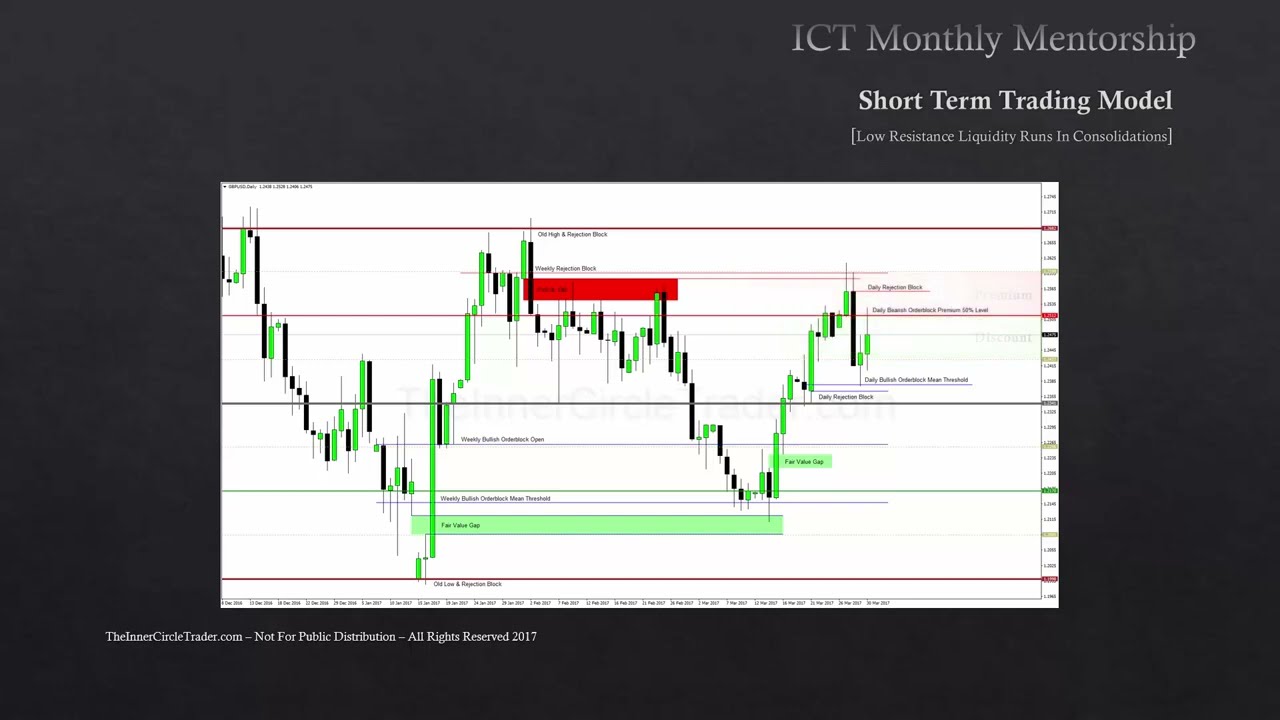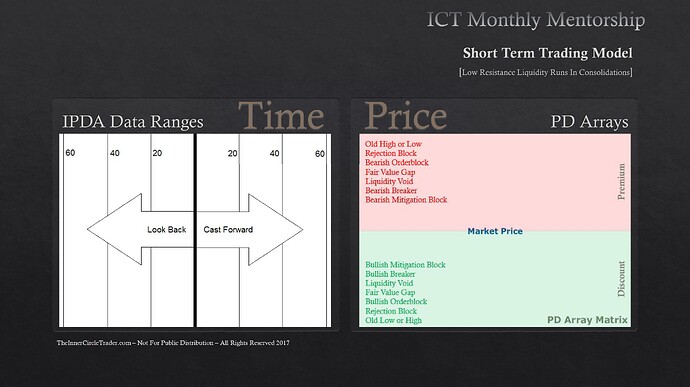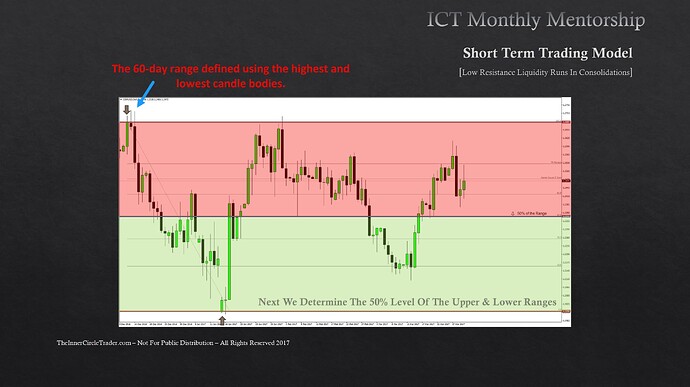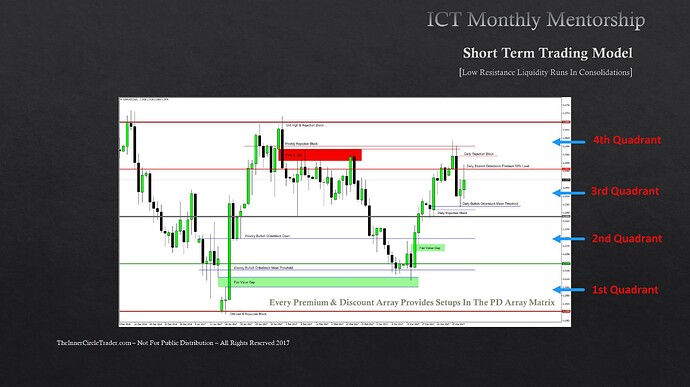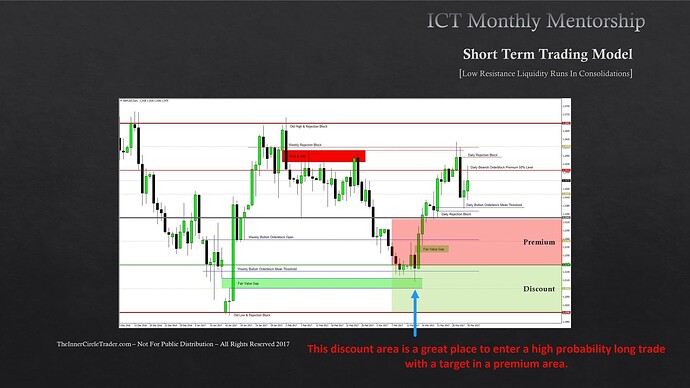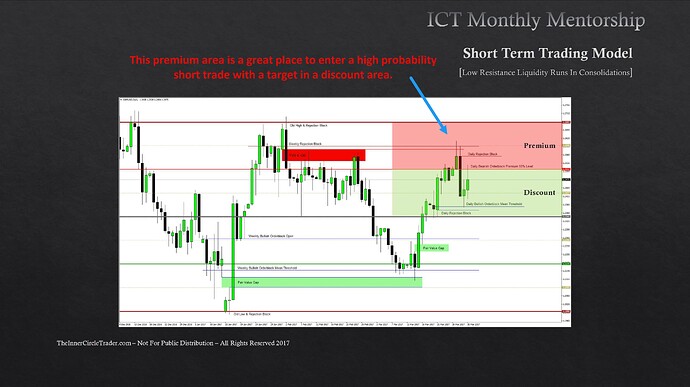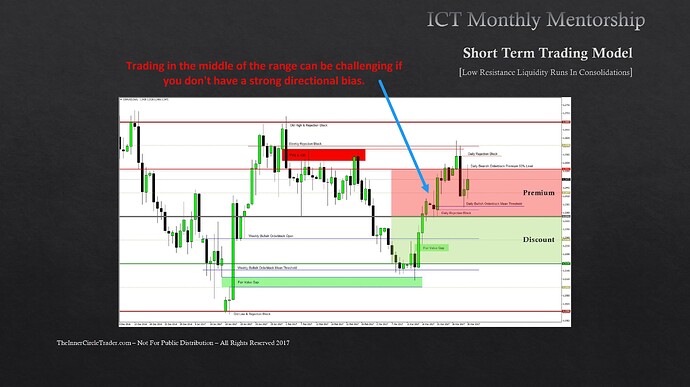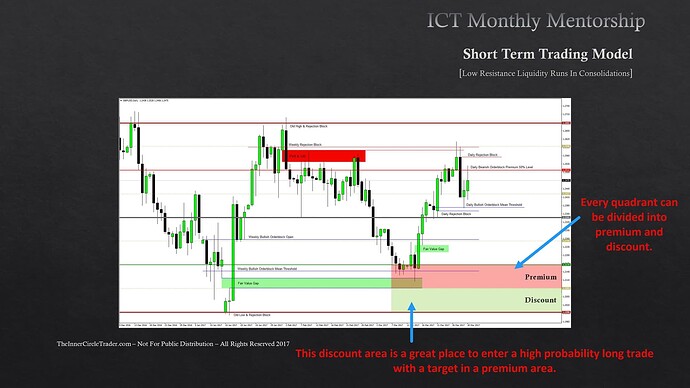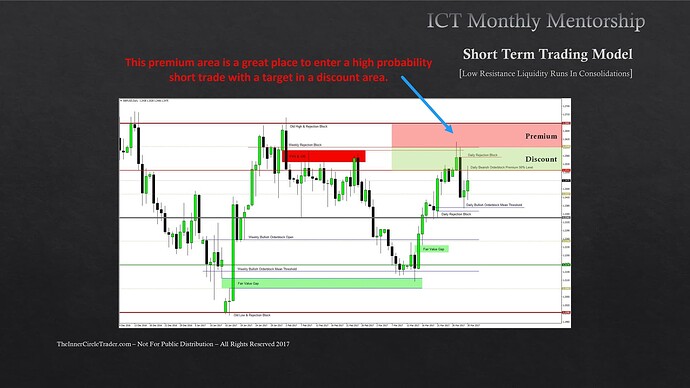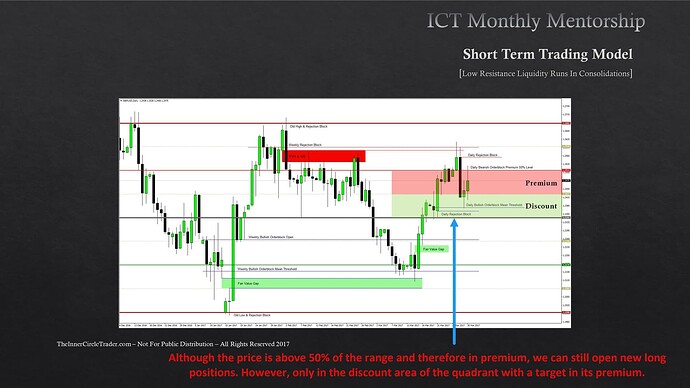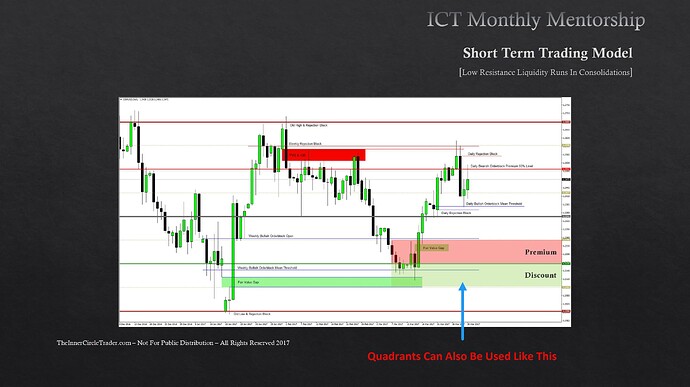Notes
- In this lesson, Michael continues to develop the concept of blending IPDA data ranges with PD Arrays.
- We look for short trade opportunities in the premium area and long trade opportunities in the discount area.
- Using the Fibonacci tool, we can divide our trading range into quadrants.
- Michael claims that dividing the trading range in this way is consistent with how the algorithm views discount and premium areas.
- Analyzing the market through 20, 40, and 60 lookback periods provides a framework for determining PD arrays for entering and exiting positions.
- One Shot One Kill trade can last one day or a whole week.
- When we analyze PD arrays, we look for ones that have not yet been used because the algorithm remembers where it has already traded.
- Trading in the middle of the range can be challenging if you don’t have a strong directional bias.
- The following applies to the consolidation profile:
- The higher the price is in the premium area, the better and easier the short trade will be.
- The lower the price is in the discount area, the better and easier the long trade will be.
Short-Term Trading Low Resistance Liquidity Runs - PD Array Matrix And IPDA Data Ranges
Short-Term Trading Low Resistance Liquidity Runs - 60-Day Range To Determine Premium And Discount
Short-Term Trading Low Resistance Liquidity Runs - Quadrants And PD Arrays
Short-Term Trading Low Resistance Liquidity Runs - Discount In Discount Area
Short-Term Trading Low Resistance Liquidity Runs - Premium In Premium Area
Short-Term Trading Low Resistance Liquidity Runs - Middle Of The Range
Short-Term Trading Low Resistance Liquidity Runs - 1st Quadrant
Short-Term Trading Low Resistance Liquidity Runs - 4th Quadrant
Short-Term Trading Low Resistance Liquidity Runs - 3rd Quadrant
[Short-Term Trading Low Resistance Liquidity Runs - Half Quadrants
Next lesson: ICT Mentorship Core Content - Month 7 - Short Term Trading - Low Resistance Liquidity Runs [Part 2]
Previous lesson: ICT Mentorship Core Content - Month 7 - Short Term Trading - Blending IPDA Data Ranges & PD Arrays
